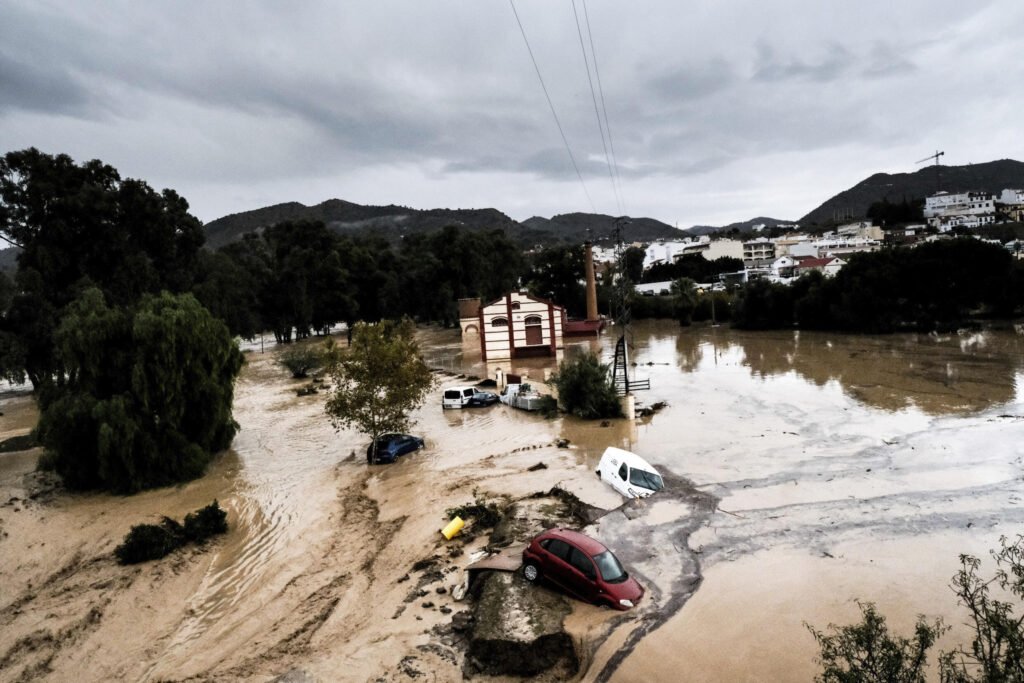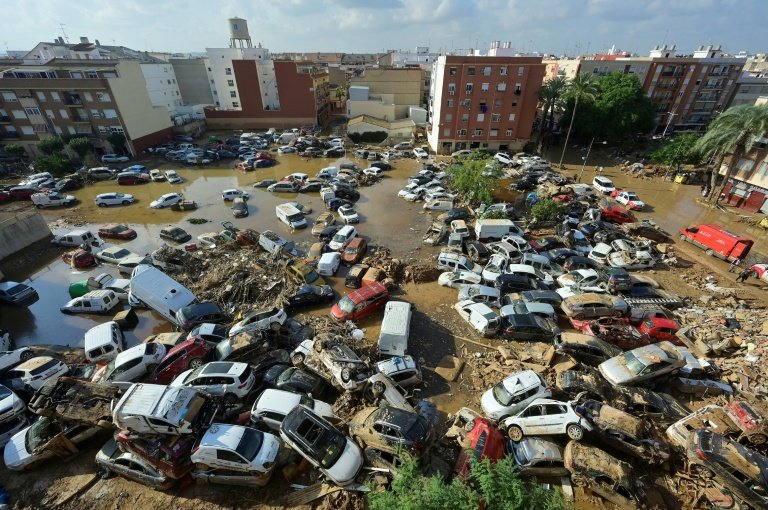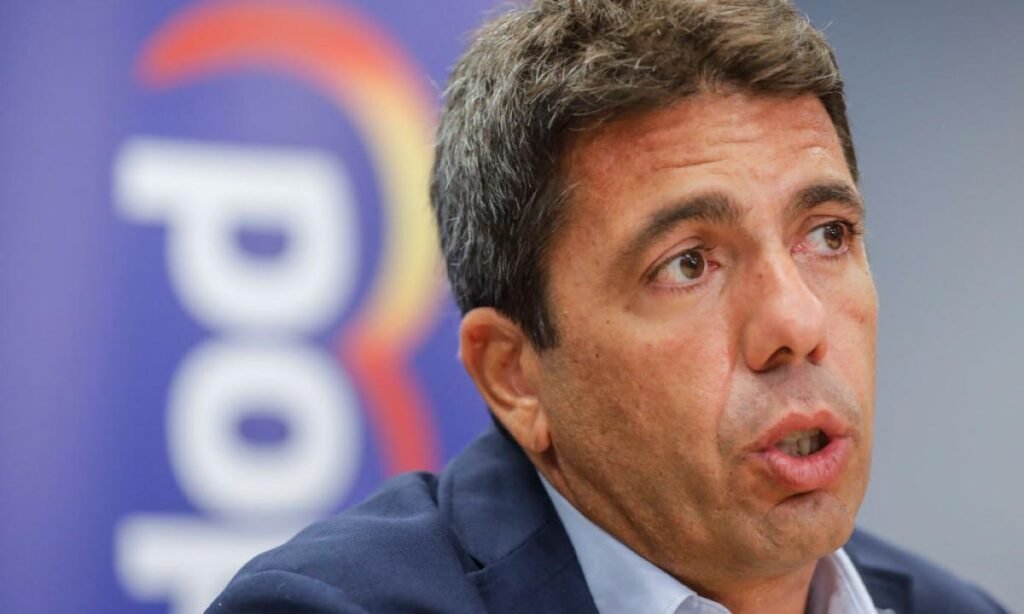
Tragedy in Valencia: How Negligence, Profits, and Climate Crisis Fueled Spain’s Flood Disaster
The recent flash floods that ravaged Spain’s eastern coast, particularly Valencia, have left an enduring impact, with a death toll of over 214 and significant destruction across the region. As entire neighborhoods were inundated, residents grappled not only with the physical aftermath but also with a profound sense of injustice. This tragedy has sparked widespread anger, bringing into sharp focus the intersection of climate change, corporate negligence, and governmental failures in handling natural disasters.
The flash floods were fueled by a recurring weather phenomenon known as DANA (Depresión Aislada en Niveles Altos) — a high-altitude atmospheric depression that triggers intense rainfall.
As global warming raises Mediterranean temperatures, these storms have intensified, making catastrophic flooding more frequent. In Valencia, this year’s DANA delivered a year’s worth of rainfall within hours, overwhelming the infrastructure and emergency services.
Negligence and Political Calculations in Emergency Management
While climate change created the conditions for severe flooding, many argue that the scope of the disaster was preventable. Criticism has been directed primarily at Valencia’s regional government, led by Carlos Mazón of the Partido Popular (PP), whose response was seen as inadequate and delayed. Despite a series of red alerts from the national meteorological agency (AEMET) predicting severe rainfall in the area, the regional government was slow to activate emergency protocols. Although AEMET had issued advisories several days in advance, an official alert was only sent to residents’ cell phones at 8:00 p.m. on October 29, by which time floodwaters had already trapped thousands.
Mazón’s administration resisted declaring a state of emergency, a decision many believe was politically motivated, as it would have necessitated national intervention and coordination with Spain’s central government. This delay hindered the deployment of the national Military Emergency Unit and the broader mobilization of resources critical to an effective response. The failure to coordinate with national authorities and the dismissal of AEMET’s warnings were seen as emblematic of a broader political approach that deprioritized public safety in favor of regional autonomy and profit-driven decisions.
The Role of Corporate Negligence: Profits Over People
Private sector negligence further exacerbated the disaster. Reports indicate that numerous companies disregarded weather warnings and kept their employees on duty, placing them in harm’s way.

In Valencia’s Bonaire shopping mall and an IKEA outlet, hundreds of employees were forced to work despite the escalating danger. Floodwaters eventually trapped them overnight, with some resorting to climbing onto rooftops to escape rising waters. In one incident, a supermarket delivery driver had to be rescued by helicopter after his van was stranded by the flood, drawing outrage as the Mercadona brand was censored in media coverage to protect the company’s reputation.
Labor unions and public officials have condemned these actions, demanding accountability for the disregard shown to workers’ safety. Spain’s Labor Minister Yolanda Díaz has called for legal action against companies that kept workers on site during the flood, emphasizing the need for stricter enforcement of disaster-related labor protections.
Class Divisions Laid Bare: Disparities in Risk and Response
The floods have starkly illustrated Spain’s class divide, with working-class communities bearing the brunt of both the physical damage and the neglect from authorities. Scenes of residents wading through flooded streets, dragging mud-filled belongings, stand in sharp contrast to the minimal disruption experienced by the affluent, who live in less vulnerable areas and can more easily access recovery resources. Volunteer efforts sprang up across Valencia, as thousands of locals, organized through grassroots networks, mobilized to clear mud from homes, remove debris from streets, and deliver essentials to affected families.
Amid the chaos, local farmers, organized through unions, joined the cleanup effort with tractors and equipment to help remove cars and debris, further demonstrating the role of working-class solidarity in the face of governmental shortcomings. When authorities attempted to regulate volunteer efforts, they met resistance from communities determined to manage their own relief activities, underscoring a popular distrust in the regional government’s leadership.
Outrage and Calls for Accountability
The anger and frustration in Valencia culminated in a visit by Spain’s King Felipe VI, Queen Leticia, Prime Minister Pedro Sánchez, and Mazón. However, the visit quickly descended into public outrage. In Paiporta, residents pelted the delegation with mud and shouted “killers,” accusing the government of failing to protect the people. One man offered his shovel to the king, symbolizing the disconnect between the monarchy and the working class that has borne the disaster’s full weight. Criticism has been particularly sharp toward Mazón, with calls for his resignation resonating throughout the region.
Juan Roig, CEO of Mercadona, was similarly confronted when he visited one of his supermarkets, facing backlash for prioritizing profits over employee safety.

The incident highlighted a broader sentiment that Spain’s capitalist system, which often prioritizes corporate profits over public welfare, had played a role in exacerbating the flood’s toll.
Beyond the Immediate Crisis: The Call for Systemic Change
Environmental activists and left-wing organizations have emphasized that the response to Valencia’s floods reflects larger systemic issues, where climate policy and disaster preparedness are sidelined for short-term economic gain. They argue that capitalist-driven urban planning has prioritized rapid development over sustainable infrastructure, placing vulnerable communities at higher risk.


The environmental group Ecologistas en Acción has pointed to the need for redesigning infrastructure to withstand increasingly frequent climate-related disasters, warning that without systemic change, such tragedies will only become more common.
This tragedy has spurred renewed calls for accountability and reform, as progressive groups push for policies that center people over profits. Activists are advocating for a comprehensive approach to climate resilience, including public ownership and control over critical infrastructure, strengthened labor protections in disaster contexts, and an end to unchecked speculative urban development.
As Spain mourns the loss of life and begins the arduous process of recovery, the floods in Valencia serve as a stark reminder of the dangers posed by profit-driven governance and inadequate climate adaptation. With a massive protest planned in Valencia and solidarity rallies across the country, the call for justice and systemic change grows louder, signaling that for many, the status quo is no longer acceptable.

